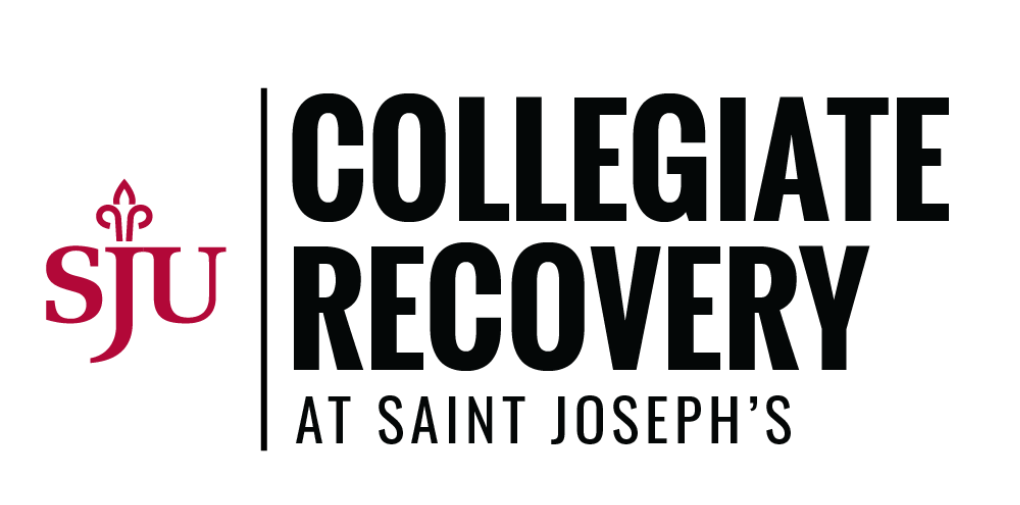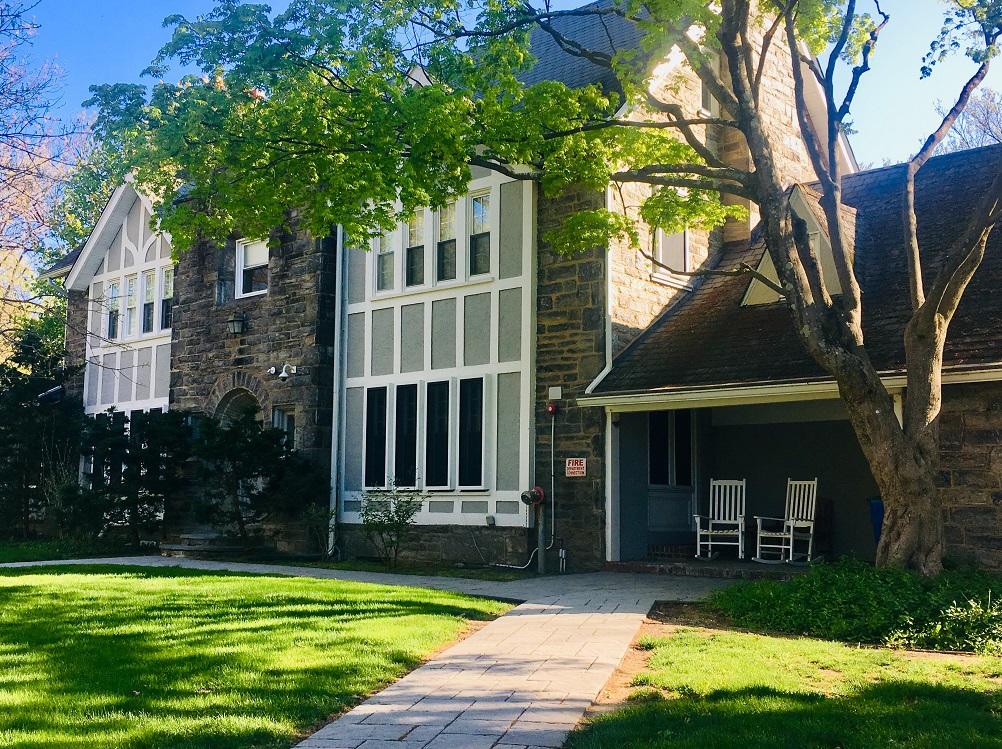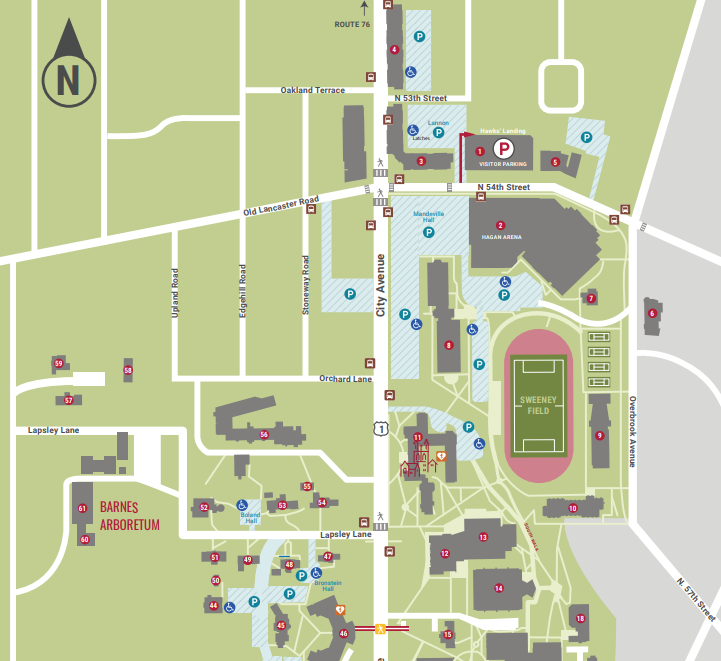2026 Collegiate Recovery Conference at SJU
EVENT OVERVIEW

CARE FOR THE WHOLE STUDENT: EXPLORING BEST PRACTICES IN COLLEGIATE RECOVERY
Wednesday, August 5, 2026 | 8:30AM - 4:30PM
Saint Joseph’s University | Hawk Hill Campus
5600 City Ave, Philadelphia, PA 19131
We are proud to host the 9th Annual Collegiate Recovery Conference at Saint Joseph's University in Philadelphia, PA. This year's event will again focus on our commitment to care for the whole student, while exploring best practices in collegiate recovery. Our goal is to foster connection, share insights, and strengthen our collective efforts to support young people on their journey to recovery from substance use and co-occurring conditions.
Collegiate Recovery Conference at SJU
Harry Levant, Internationally Certified Gambling Counselor and Doctor of Law and Public Policy | 2025 Conference Keynote Speaker
Kristina Canfield, Executive Director for the Association of Recovery in Higher Education (ARHE) with Keith Murphy, LPC, LCADC, Director, Alcohol and Other Drug Assistance Program (ADAP) Rutgers University
Shawna Gigliotti DrOT, OTR/L, Director of Training and Development at Belmont Behavioral Health System
2025 Resilience & Recovery Student Award Recipients
Afternoon Keynote Panel
-
- Explore how a university’s mission influences the creation of recovery-friendly environments and the promotion of holistic support for students in recovery.
- Explore emerging best practices in collegiate recovery and mental health support.
- Explore the impact of stigma on the development and utilization of mental health and recovery services, both on and off campus.
- Foster a community of professionals committed to transforming student support and advancing best practices in collegiate recovery.
CALL FOR PROGRAMS - NOW OPEN!
We are excited to announce that the Call for Programs is now open for this year's Collegiate Recovery Conference! We invite students, faculty, staff, clinicians, and community partners to submit proposals that highlight innovative programs, research, and practices that support students in recovery and foster recovery-friendly campus communities. This is a meaningful opportunity to share your work, elevate student voices, and contribute to a growing network dedicated to well-being, connection, and recovery in higher education.
We look forward to learning from and with you!
Submit your Program Proposal Here
Program proposals are due by midnight (EST) on Wednesday APRIL 15, 2026.
Please contact Dr. Allison Dukes (adukes@sju.edu) or Bevin McSorley (recovery@sju.edu) if you have any questions.
CONFERENCE SPONSORSHIP
-
Thank you for your interest in sponsoring our 2026 SJU Collegiate Recovery Conference. Below you will find sponsorship level opportunities.
View the 2026 Sponsorship Prospectus
$3,000 — Community Ally (Four Available)
- Name and/or company logo featured on the conference website and digital displays
- Recognition during the Opening and Closing sessions
- Opportunity to address attendees during the Opening/Welcome session (up to 5 minutes)
- Opportunity to present an educational breakout session
(Session topic subject to approval by the SJU Conference Committee) - Five (5) conference registrations included
- Resource table during the conference
$1,500 — Recovery Advocate
- Name or company logo featured on the conference website and digital displays
- Recognition during the Opening and Closing sessions
- Three (3) conference registrations included
- Resource table during the conference
If you have any questions or would like to explore sponsorship options, please contact Marci Berney, Executive Director, Student Support & Well-being at 610-660-1149 or recovery@sju.edu for more information.
REGISTRATION
Registration will open on May 1, 2026
Early Bird Registration: May 1-July 1, 2026
Professionals: $50
All Students: FREE (code: stu_free)
Regular Pricing: July 2 - August 1, 2026
Professionals: $75
All Students: FREE (code: stu_free)
SCHEDULE
-
Please see below for the 2025 conference agenda.
8:30AM-9AM
Registration & Light Breakfast
9 AM
Welcome & Opening Remarks
Sponsor Spotlight
Introduction of Keynote
9:15AM
Morning Keynote (Details coming soon!)
10:40AM
BREAKOUT SESSION #1
11:40AM
BREAKOUT SESSION #2
12:30PM
Networking Lunch
1:15PM
Sponsor Spotlight
Introduction of Student Scholarship Recipient
1:30PM Afternoon Keynote (Details coming soon!)
2:30PM
BREAKOUT SESSION #3
3:30PM
Conference Closing Remarks & Social
CONTINUING EDUCATION CREDIT HOURS
The Collegiate Recovery Program at SJU is seeking approval by the National Board for Certified Counselors (NBCC) to offer continuing education credit hours for “SJU Regional Collegiate Recovery Conference: Care for the Whole Student, Exploring Best Practices in Collegiate Recovery.” More information coming soon.
TRAVEL & PARKING
PARKING INFORMATION
Free parking is available for conference attendees in the Mandeville Hall Parking Lot (number 8 on the campus map).
Mandeville Hall parking lot is located on N. 54th Street near City Avenue.
HOTEL INFORMATION
Image

| Traveling From Out of Town?The Hilton Philadelphia City Ave is located just down the street from the SJU Hawk Hill Campus. Hilton Philadelphia City Avenue |
SJU COLLEGIATE RECOVERY PROGRAM (CRP)
Image

| Learn more about the Collegiate Recovery Program (CRP) and the on-campus Recovery Residence at Saint Joseph's University! |
